As a SaaS founder, you’ve likely asked yourself: “How much should I pay for SEO?”
It’s a common question, but the answer isn’t as straightforward as you might hope.
Let’s paint a familiar scenario:
You’re on a call with an SEO agency, and the conversation goes something like this:
Founder: “We need help with SEO. How much do you charge?”
Agency: “That depends. What’s your budget?”
Founder: awkward pause “We’re not sure. What do you think is fair?”
Sound familiar?
If so, you’re not alone.
Most SaaS founders struggle to navigate the murky waters of SEO pricing. Spend too little, and you risk wasting money on poor results. Spend too much without understanding ROI, and it feels like you’re throwing cash into a black hole.
Here’s the truth: SEO isn’t just about ranking keywords. It’s about building a sustainable system that drives high-intent traffic, converts it into revenue, and compounds over time. The key is knowing what you’re paying for and aligning it with your growth stage and goals.
In this article, we’ll break down:
- the typical SEO budget for SaaS companies
- different tiers of SEO agencies and what you can expect from each
- common pitfalls to avoid when hiring an agency
- why SEO is a long-term investment (not a quick fix)
By the end, you’ll have a clear understanding of how much to invest in SEO and, more importantly, how to ensure it pays off. Let’s dive in!
Check out: 10 Best SEO Agencies in Bangalore
Table of Contents
Why SEO Matters for SaaS Companies
SEO is more than just ranking #1 on Google.
For SaaS companies, it’s about driving high-intent traffic—the kind of traffic that’s actively searching for solutions your product provides.
Unlike ads, which stop delivering results the moment you stop paying, SEO creates a compounding ROI that can fuel your growth for years to come.
Why every SaaS company needs an SEO agency instead of wasting $10k/month on paid ads.
— Apoorv Sharma | SaaS SEO Specialist (@apoorvshrm) January 22, 2025
Ads stop working when the money runs out. SEO keeps growing.
Here’s why SEO is the smartest investment for SaaS founders in 2025: 🧵👇
Also see: SEO vs. Paid Ads: 10 Stats SaaS Companies Must Know
Here’s why SEO is crucial for SaaS businesses:
1. Capturing Demand at the Right Time
Imagine a prospect searching for “best project management software for remote teams.”
They’re not just browsing—they’re actively looking for a solution. With strong SEO, your SaaS product can show up right when they need it, positioning you as a trusted option.
2. Sustainable Growth Over Time
Paid ads can bring quick wins but are expensive and stop working the moment your budget runs out. SEO, on the other hand, creates a pipeline of organic traffic that grows over time, delivering a better cost-per-acquisition in the long run.
3. Building Trust and Credibility
Ranking organically for competitive keywords signals to prospects that your SaaS product is a credible player in the market.
Think about it: Would you trust the top organic result or a paid ad? Most people inherently trust organic search results more.
4. Competitive Advantage in Crowded Markets
In the competitive SaaS landscape, SEO helps you stand out. If your competitors are dominating search engine results, they’re likely capturing traffic and leads that could’ve been yours. Strong SEO ensures you don’t lose ground.
5. Compounding ROI
Every SaaS founder should ask:
Apoorv Sharma, Derivatex
– Do I want to rent traffic (ads)?
– Or do I want to OWN traffic (SEO)?
Unlike ads, SEO isn’t a “pay-to-play” game. The traffic and leads you generate through SEO efforts today will continue to flow in, even months or years down the line. Every blog post, backlink, and optimization adds to your digital foundation.
For SaaS companies, SEO isn’t just a nice-to-have—it’s a must-have growth strategy. But knowing its importance is one thing; figuring out how much to spend is another. That’s what we’ll tackle next.
You might also like: SaaS SEO Profitability Matrix
SEO Budget Benchmarks for SaaS
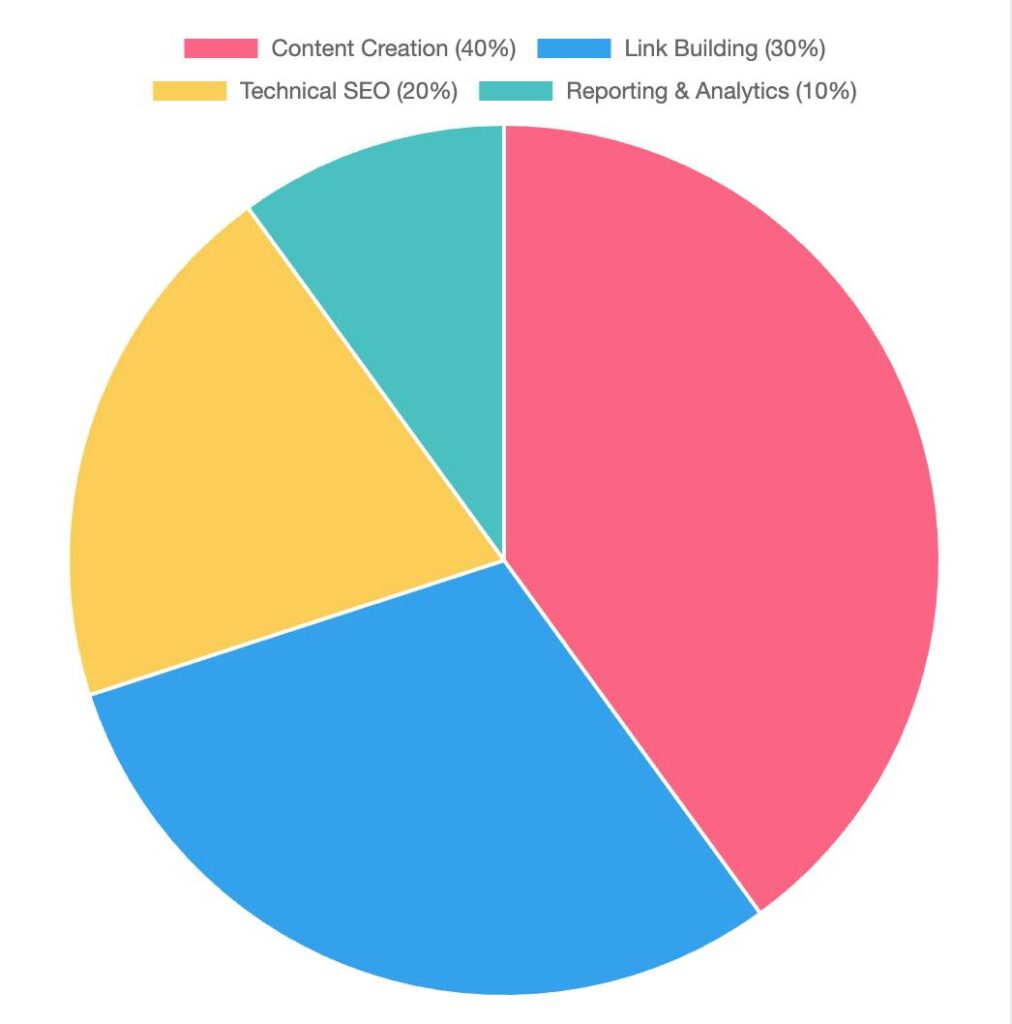
When it comes to SEO, one size doesn’t fit all.
The amount you should spend depends on your Monthly Recurring Revenue (MRR), growth stage, and goals.
However, a good rule of thumb for SaaS companies is to allocate 10–15% of your MRR to SEO efforts.
This budget ensures you’re investing enough to see meaningful results while still aligning with your company’s revenue and growth stage.
Examples of SEO Budgets Based on MRR:
- $50k MRR: A recommended budget of $5,000/month for SEO.
- $100k MRR: A recommended budget of $7,000–$10,000/month.
- $500k MRR: A recommended budget of $50,000/month for a more aggressive, enterprise-level SEO strategy.
This range provides the flexibility to choose an agency or team that fits your specific needs.
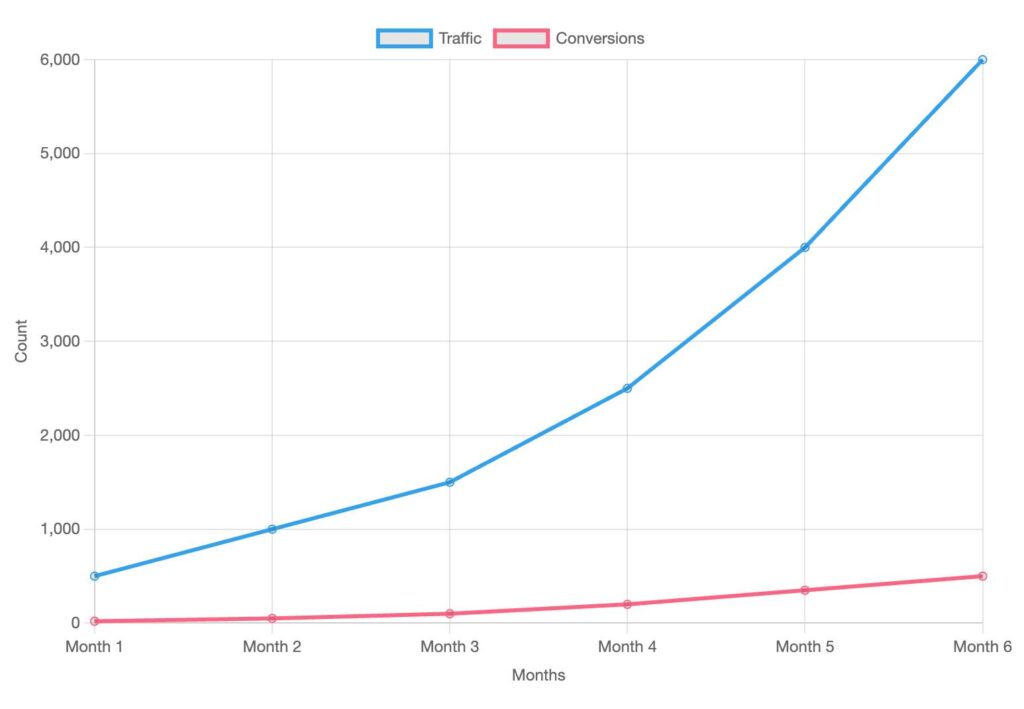
What Happens if You Underspend on SEO?
If you budget less than $1,500/month, you risk working with freelancers or agencies that lack SaaS expertise.
This often results in:
- Minimal progress.
- Spammy tactics like low-quality backlinks.
- Lack of understanding of your business model and target audience.
Spending too little can also lead to wasted time fixing mistakes later. SaaS businesses that cut corners on SEO often end up paying more to repair damage or regain lost rankings.
Why 10–15% of MRR is the Sweet Spot?
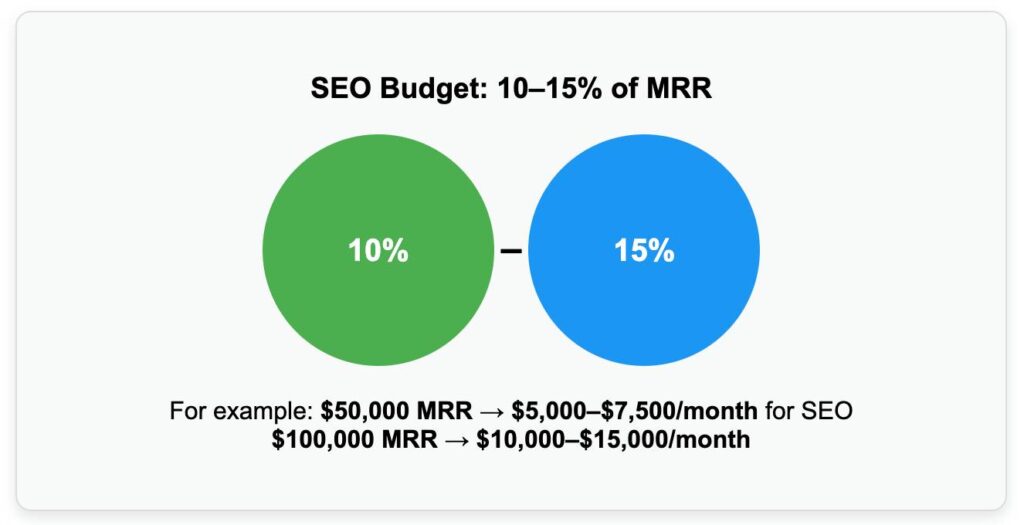
Investing in this range ensures you’re working with experts who understand the nuances of SaaS SEO. This includes:
- Building a keyword strategy targeting high-intent users.
- Creating optimized, authoritative content that resonates with your ICP.
- Fixing technical SEO issues that impact your site’s performance.
- Securing high-quality backlinks to improve your domain authority.
This budget approach scales with your business growth. As your MRR increases, your SEO investment grows, enabling you to capture more market share and dominate your niche.
Types of SEO Agencies and Their Pricing
| Category | Price Range | What You Get | Best For |
|---|---|---|---|
| Freelancers | $500–$1,500/month | Basic optimizations, limited scope | Local businesses, not SaaS |
| Small Agencies | $2,000–$5,000/month | Steady growth, content, technical fixes | Growing SaaS startups |
| Premium Agencies | $5,000–$10,000+/month | Full-scale strategy, faster ROI | Scaling SaaS companies |
Not all SEO agencies are created equal, and their pricing reflects the scope and quality of their services. As a SaaS founder, it’s essential to understand what you’re paying for and choose an agency that aligns with your growth stage and goals.
Here’s a breakdown of the three primary types of SEO providers and what you can expect from each:
1. Freelancers ($500–$1,500/month)
Freelancers are typically the most affordable option for SEO. They can handle basic optimizations but often lack the resources and expertise to deliver comprehensive results for SaaS companies.
What You’ll Get:
- Basic on-page SEO (e.g., title tags, meta descriptions).
- Limited keyword research.
- Minimal content creation.
- No SaaS-specific expertise or in-depth strategy.
Best For:
- Local businesses or startups with minimal SEO needs.
- Companies testing the waters with SEO but not ready for aggressive growth.
Why It’s Not Ideal for SaaS:
SaaS companies need more than surface-level SEO. Freelancers often lack the ability to build a long-term, scalable strategy tailored to SaaS products. You’ll quickly outgrow their capabilities.
2. Small Agencies ($2,000–$5,000/month)
Small agencies offer a step up from freelancers, providing more structured processes, a team of specialists, and a broader range of services.
What You’ll Get:
- Comprehensive keyword research tailored to your SaaS niche.
- Ongoing content strategy and creation (e.g., 2–4 blog posts per month).
- Basic technical SEO fixes to improve site performance.
- A consistent approach to tracking and improving rankings.
Best For:
- Growing SaaS companies with $20k–$50k MRR looking to establish an SEO foundation.
- Companies that want steady traffic growth and predictable results.
Limitations:
While small agencies can help you achieve steady growth, they may lack the resources for advanced strategies like enterprise-level technical audits, large-scale link-building campaigns, or CRO (conversion rate optimization) support.
3. Premium Agencies ($5,000–$10,000+/month)
Premium agencies are the go-to for SaaS businesses focused on aggressive scaling and dominating their market. These agencies provide a full-funnel SEO strategy, combining technical expertise, content creation, and CRO to maximize ROI.
What You’ll Get:
- Advanced technical SEO fixes (site speed, schema, indexing issues).
- High-quality content creation (8–12+ blog posts/month tailored to your ICP).
- Strategic link building to improve domain authority (10–20+ backlinks/month).
- CRO support to ensure SEO traffic converts into leads and customers.
- Detailed reporting and a data-driven approach to decision-making.
Best For:
- SaaS companies with $50k+ MRR that are scaling aggressively.
- Businesses aiming for rapid growth, international expansion, or enterprise-level traffic.
Why It’s Worth It:
Premium agencies specialize in SaaS. They understand your sales cycle, ICP, and unique challenges, ensuring every dollar spent contributes to your growth goals.
Which Option is Right for You?
- If you’re under $20k MRR: Focus on foundational SEO (DIY or a freelancer).
- If you’re between $20k–$50k MRR: A small agency is a smart choice for predictable growth.
- If you’re $50k+ MRR: Invest in a premium agency for advanced strategies and exponential growth.
SEO Budget Calculator
Estimate your recommended SEO budget based on your monthly recurring revenue (MRR). Enter your MRR below, and we’ll calculate 10–15% of it for you!
Your recommended SEO budget is:
per month.
What to Avoid When Hiring an SEO Agency
Choosing the wrong SEO agency can cost you more than just money—it can lead to wasted time, poor results, and even long-term damage to your website’s reputation.
As a SaaS founder, it’s crucial to recognize the red flags that signal an agency isn’t the right fit.
Here are the most common pitfalls to avoid:
1. Unrealistic Promises
Be wary of agencies that guarantee quick results or make bold claims like:
- “We’ll get you to Page 1 in 30 days!”
- “Rank #1 for every keyword overnight!”
- “We’ll 10x your traffic instantly!”
SEO is a long-term game. Achieving sustainable, high-quality results takes time, especially in competitive SaaS markets. Agencies offering quick fixes often rely on shady practices that can lead to penalties from search engines.
2. Dirt-Cheap Services
If an agency offers SEO for $500/month with promises like “100 backlinks for $500” or “Unlimited SEO for $200/month,” RUN—don’t walk.
These low-cost services often involve:
- Spammy backlinks from irrelevant or low-quality websites.
- Automated content creation tools that produce thin or duplicate content.
- Minimal effort with little to no results.
Such tactics might provide a temporary boost, but they can hurt your site in the long run. Recovering from penalties or bad SEO practices often costs far more than investing in quality from the start.
3. Lack of SaaS Expertise
Not all SEO agencies understand the nuances of SaaS businesses.
Generic agencies may:
- Target irrelevant keywords that don’t attract high-intent users.
- Fail to align SEO efforts with your SaaS sales funnel or ICP.
- Overlook SaaS-specific strategies, like creating content for product-led growth (PLG) or competitive comparisons.
Always choose an agency with proven experience working with SaaS companies.
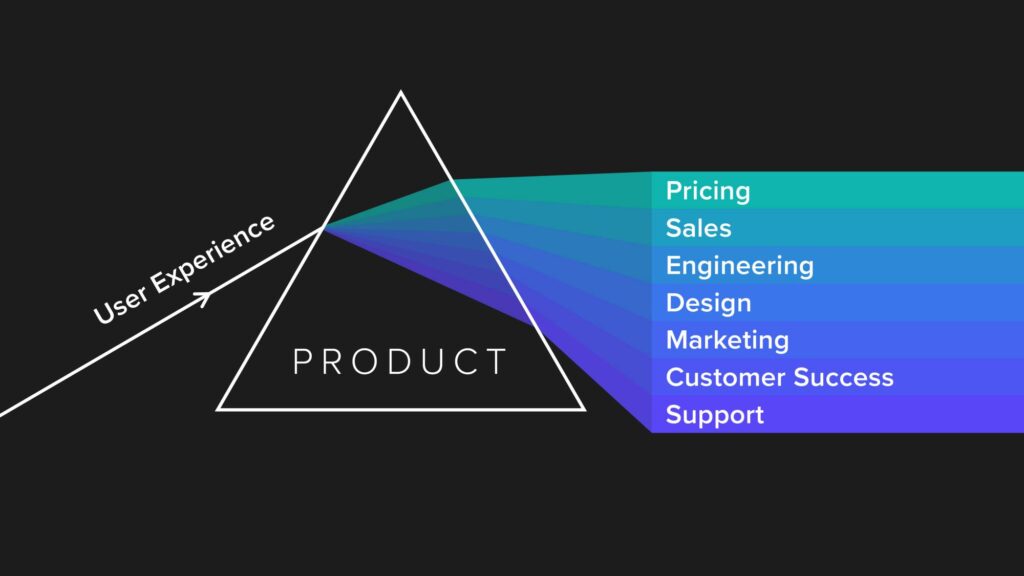
4. No Transparency in Strategies or Reporting
Avoid agencies that are vague about their process or fail to provide regular, detailed reporting. Transparency is key to understanding where your investment is going and the results you’re achieving. Watch out for:
- Agencies unwilling to explain their strategies.
- Over-reliance on vanity metrics (e.g., total traffic) instead of meaningful KPIs like MQLs or SQLs.
5. Overpromising and Underdelivering
If an agency promises to tackle everything (content, technical fixes, link building, CRO) for an unusually low price, it’s a sign they may overextend themselves and underdeliver. SEO requires focus and expertise, and quality work costs money.
How to Avoid These Pitfalls?
When evaluating an agency, ask these key questions:
- What is your experience with SaaS SEO? Look for case studies and references.
- What results can I expect in the first 3–6 months? Beware of guarantees, but ask for realistic timelines.
- How do you approach link building? Avoid agencies that rely on cheap, spammy backlinks.
- Can you provide regular updates and reports? Make sure you’ll receive transparent, actionable insights.
- What KPIs will you measure? Ensure they’re focused on metrics that align with your business goals (e.g., high-intent traffic, conversions, MQLs).
By avoiding these common pitfalls and partnering with a trusted SEO agency for SaaS, you’ll ensure your SEO investment drives real growth for your SaaS business.
FAQs
-
How much should a SaaS company spend on SEO?
10–15% of your MRR is a good rule of thumb. For example, if your MRR is $50k, aim to invest around $5,000/month.
-
Is $500/month enough for SaaS SEO?
No. At $500/month, you’re limited to basic optimizations, which aren’t sufficient for SaaS businesses. Invest in a higher budget to see meaningful results.
-
How long does it take to see results from SEO?
It depends on your starting point and strategy, but most SaaS companies see measurable results within 3–6 months, with significant growth over 12+ months.
-
Should I hire an in-house team or work with an agency?
For early-stage SaaS, an agency with SaaS expertise is often more cost-effective. As you scale, you can consider building an in-house team.
-
What’s the most important metric to track in SEO?
Focus on metrics aligned with your goals, such as high-intent traffic, leads, MQLs, and conversions, rather than vanity metrics like total traffic.
Conclusion: How Much Should You Pay an SEO Agency as a SaaS Founder?
SEO is not just a marketing tactic—it’s a powerful growth engine for SaaS companies. By understanding how much to invest, what to expect, and how to evaluate an agency, you can make informed decisions that drive long-term results.
Here’s a quick recap of the key takeaways:
- Budget 10–15% of your MRR for SEO: This ensures you’re investing enough to work with experts who understand SaaS-specific strategies.
- Match your agency choice with your growth stage:
- Freelancers for minimal budgets (under $1,500/month).
- Small agencies for steady growth ($2,000–$5,000/month).
- Premium agencies for aggressive scaling ($5,000–$10,000+/month).
- Avoid common pitfalls: Stay away from unrealistic promises, dirt-cheap services, and agencies without SaaS expertise.
- Think long-term: SEO delivers compounding ROI, reduces acquisition costs, and builds brand authority over time.
Investing in SEO might feel like a big commitment, but it’s one of the most scalable and sustainable ways to grow your SaaS business. By partnering with the right agency and committing to a long-term strategy, you’ll not only see higher rankings and traffic but also a measurable impact on your bottom line.
Ready to Take Your SaaS SEO to the Next Level?
If you’re looking for a trusted partner to deliver high-quality, SaaS-specific SEO strategies, consider Derivate X. With proven expertise in driving results for SaaS companies, we’re here to help you scale your growth.
Reach out today for a 1:1 call with us, and let’s discuss how we can make SEO a growth lever for your business!

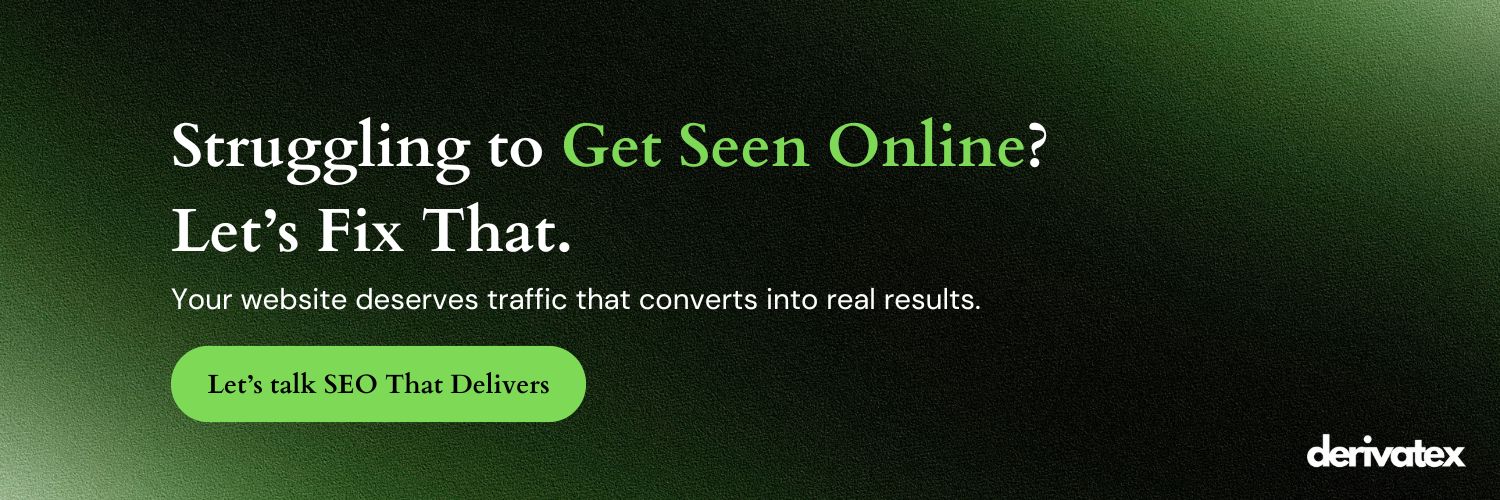
GIPHY App Key not set. Please check settings